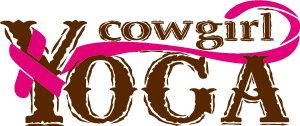
Thanks to Amy, guest blogger and 2010 Cowgirls vs. Cancer scholarship recipient. She will blog here monthly on her journey through breast cancer treatment.
I have been watching and reading about the new task force guidelines for several days now, with the recommendation that women wait until the age of 50 to begin their scheduled mammogram. As a new breast cancer survivor, I am angry.
At age 40, I scheduled my routine mammogram. I have no family history of cancer and have none of the risk factors. But I went in for the test because the guidelines were for the age of 40. They found an aggressive tumor in my left breast. Had I not followed that age 40 guideline, the tumor would have remained undetected until the cancer spread beyond my chest wall and I became symptomatic, quite likely rendering a less treatable diagnosis…possibly even a terminal one.
I have four young children, family and friends who love and need me. It is insulting to me that I am considered just an anecdote in the task force findings. Why would we compromise women’s health even if the numbers at risk are lower? And, keep in mind that these new recommendations were based on only one study.
The task force argues that false positives create unnecessary anxiety. I personally will continue to encourage the women I love to get their mammogram at age 40…or even younger. I would much rather see them with a bit of anxiety vs. the possibility that cancer would go undetected.
Fortunately, many reputable physicians and clinics are standing behind the previous guidelines. Dr. Kent Osborne, the director of Baylor’s Cancer Center and Breast Center states that, “screening women in their 40’s is important because breast cancer that strikes when a women is that age tends to be more aggressive.”
The American Cancer Society stands behind its recommendation that women begin the screening process at age 40. Mayo Clinic and many other reputable breast and cancer centers have chosen to ignore the new guidelines.
I went to chemo the other day and asked the oncology nurses their opinions. One of them stated her frustration with once again being reactive instead of proactive. These new guidelines give women “on the fence” about a mammogram new reason to pause; to ignore or put off the test because it is uncomfortable or inconvenient. And yet, the mammogram, although not perfect, is still our best tool in the fight against breast cancer as early detection is critical.
Continue to be proactive with your health, my friends.
Thankfully, I was.